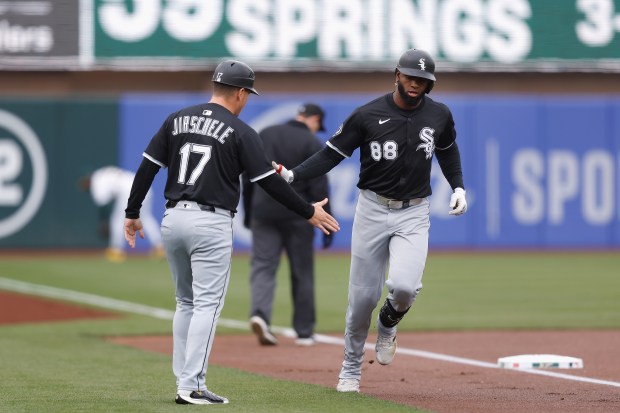A bond plan defended by Mayor Brandon Johnson’s administration as “relatively typical” was held up in the City Council Wednesday amid aldermanic concerns about Chicago’s long-term debt load.
Alds. Anthony Beale, 9th, and Raymond Lopez, 15th, used a parliamentary maneuver to stall the scheduled vote on the $830 million bond that would pay for a variety of infrastructure projects. The move delays a vote until the City Council’s next meeting and marks a rare rebuke of what the mayor’s team views as a routine capital project spending plan.
In a heated debate before the maneuver, supporters of the plan defended it as a necessary and routine capital project spending plan, but opponent Ald. Bill Conway, 34th, described it as “fiscal insanity and not normal.”
Conway cited the possibilities of federal funding cuts and future credit downgrades to call Johnson’s plan “downright ludicrous.” He pushed for the plan to be sent back to the Finance Committee, a request the City Council rejected in a 27-23 vote.
“You were all sent here to not make the same can-kicking decisions that our predecessor made,” he told aldermen.
But Johnson’s Finance Committee chair, Ald. Pat Dowell, 3rd, argued the bond plan has instead been “unfairly ridiculed.” She called the plan “standard and necessary” and said the city cannot risk not having the money to pay for infrastructure maintenance while President Donald Trump threatens to cut federal support.
“Any delay in the passing of this bond deprives Chicagoans of the infrastructure they rely on every day,” Dowell said.
Johnson’s administration plans to schedule another City Council meeting to vote on the bond plan as quickly as possible, a top mayoral staffer said. Public access laws require a notice of two business days before a meeting can occur, meaning a meeting could occur as soon as Friday afternoon.
The concerns around the bond plan gained footing late last week when Conway criticized the repayment schedule as “reckless” in a Friday Tribune op-ed. State Comptroller Susana Mendoza agreed in a Sun-Times opinion piece, stressing that ratings agencies would look poorly on the move.
Dowell took a shot at the commentary Wednesday, stating “the posturing in the public square has become the new determination of fact.”
“For those who want to reduce our [Capital Improvement Plan] to attention grabbing headlines, do so. But do so knowing nothing short of the safety and accessibility of our city is at stake,” she said.
The total repayment cost for the bond is an estimated $2 billion. Conway and others took issue with the payment schedule, noting the city plans to only pay interest for the first 19 years and would not pay principal until 2045. That principal cost would grow from $27 million to about $129 million by the debt’s 2055 due date.
City finance officials said that structure is not uncommon and would help smooth out the overall debt load for taxpayers. Mounting general obligation debts are expected to grow and continually stress the city’s annual budget through a peak in the mid-2030s. Ratings agencies are already aware of the borrowing, which would not be a factor in any further downgrades, officials said.
Ald. Scott Waguespack, 32nd, said he felt like he got “snookered” when he learned about the timeline for the debt’s repayment, which he said was not fairly highlighted by Johnson’s administration.
“We’ve got to be transparent, people. We’ve got to be honest,” Waguespack said.
Budget Committee chair Ald. Jason Ervin, 28th, joined Dowell in pushing back against the critics. He called the fault-finding “irrational” and “illogical” and said aldermen opposed to the street resurfacings, alleyway repairs and light installations the plan would pay for need to “get the hell out of here.”
“This is not different. This is not un-transparent. This is how you do financial planning and debt over time,“ he said. “It seems to me that when we start talking about what we can do in the interest of Black folks in this city, the flags go up.”





